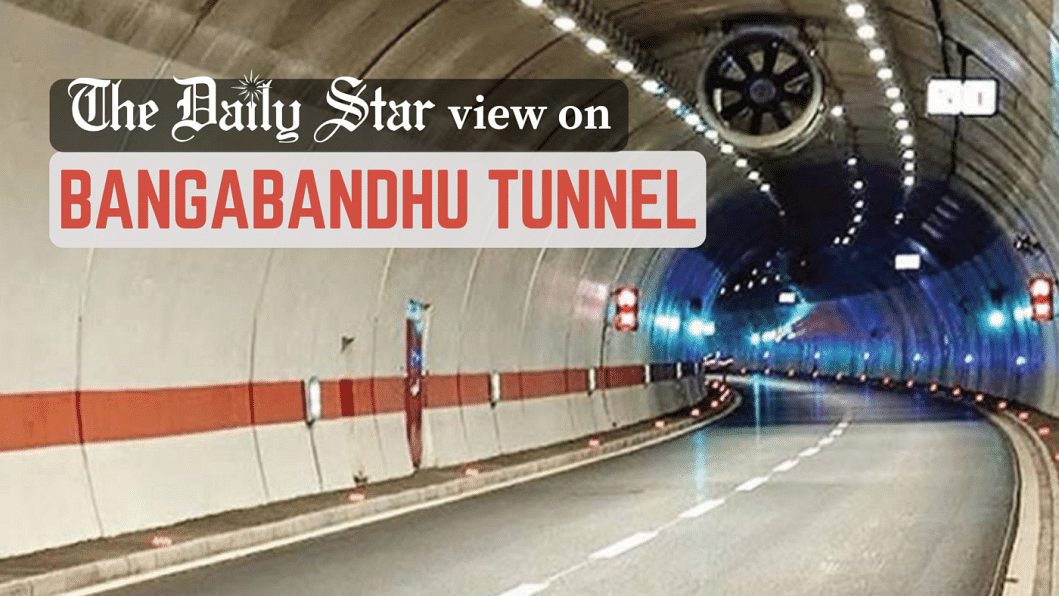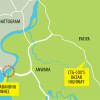Bangabandhu tunnel comes with great promise

It is a proud moment for Bangladesh to be opening South Asia's first underwater tunnel, and we congratulate the government for getting this impressive engineering feat completed, despite delays due to land acquisition, Covid-19 pandemic as well as escalating costs of the project. That such a complex and challenging work could be finally accomplished, seven years after its foundation stone was laid, is certainly something to celebrate. The Bangabandhu tunnel under the Karnaphuli River connects two major towns on opposite banks and will significantly reduce travel time to Cox's Bazar and Chattogram Hill Tracts. There are immense benefits to be reaped from the enhanced economic activities and boost to tourism over time.
No doubt the 9.32 km tunnel, which has been jointly financed by Bangladesh and China and constructed by a Chinese company, is a remarkable engineering feat, and the experience of local engineers and workers who helped build it will be invaluable. While the highly advanced technology used to build the tunnel assures us of its safety, we would hope that it will be managed efficiently, and in a planned way, so that its objectives to reduce traffic congestion and reduce travel time are realised. Proper monitoring with adequate patrols is extremely important to ensure that speed limits and other traffic rules are followed properly.
Built at a cost of Tk 10,689.42 crore, it is certainly one of the most expensive mega projects of this government and it is important that such a large investment brings in equivalent benefits. According to the feasibility report of the tunnel, over 7 million vehicles will be able to travel through it every year, with an average of 28,305 vehicles every day, by 2025. The tunnel will give a fillip to the Chattogram port, local industries and the Bangladesh Navy as it will facilitate access to the Bay of Bengal.
It is also expected to be beneficial for the Korean EPZ and under-construction China EPZ. Around 80 industrial facilities – including textiles, shipbuilding, food processing, steel and cement industries – are to be constructed along the Karnaphuli River. This, in turn, promises better living standards and employment opportunities in the region. Cross-border trade is also expected to increase significantly between Bangladesh, India and Myanmar. As part of the "One Belt, One Road" initiative, it will be part of cross-country transport corridors.
These are exciting predictions, and we wholeheartedly desire that they are fully realised.


 For all latest news, follow The Daily Star's Google News channel.
For all latest news, follow The Daily Star's Google News channel. 










Comments